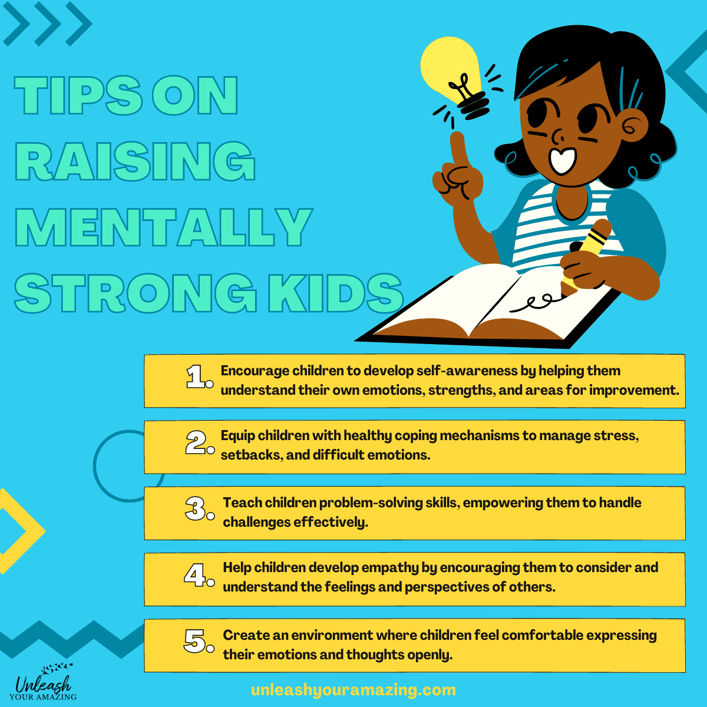Building EQ in the next generation
As parents and leaders in the community, it is our responsibility to help the next generation build their mental strength. Here are a few tips to help.
-
Foster self-awareness: Encourage children to develop self-awareness by helping them understand their own emotions, strengths, and areas for improvement. Teach them to recognize their thoughts and feelings, and how they can impact their behavior.
-
Teach coping skills: Equip children with healthy coping mechanisms to manage stress, setbacks, and difficult emotions. Teach them techniques like deep breathing, positive self-talk, mindfulness, or engaging in activities they enjoy to help them regulate their emotions effectively.
-
Encourage problem-solving: Teach children problem-solving skills, empowering them to handle challenges effectively. Encourage them to identify the problem, brainstorm potential solutions, evaluate their pros and cons, and choose the best course of action. Celebrate their efforts and encourage a growth mindset, emphasizing that mistakes and setbacks are opportunities to learn and grow.
-
Promote empathy and perspective-taking: Help children develop empathy by encouraging them to consider and understand the feelings and perspectives of others. Engage in discussions about different points of view, encourage kindness and compassion, and teach them to express empathy through words and actions.
-
Encourage open communication: Create an environment where children feel comfortable expressing their emotions and thoughts openly. Encourage active listening, validate their feelings, and provide support and guidance when needed. Foster open dialogue and teach them effective communication skills to express their needs, opinions, and emotions in a respectful and assertive manner.
Remember, building mental strength and emotional intelligence is an ongoing process that requires patience, consistency, and positive reinforcement. By incorporating these tips into daily interactions and activities, you can help children develop the skills necessary for their overall well-being.





